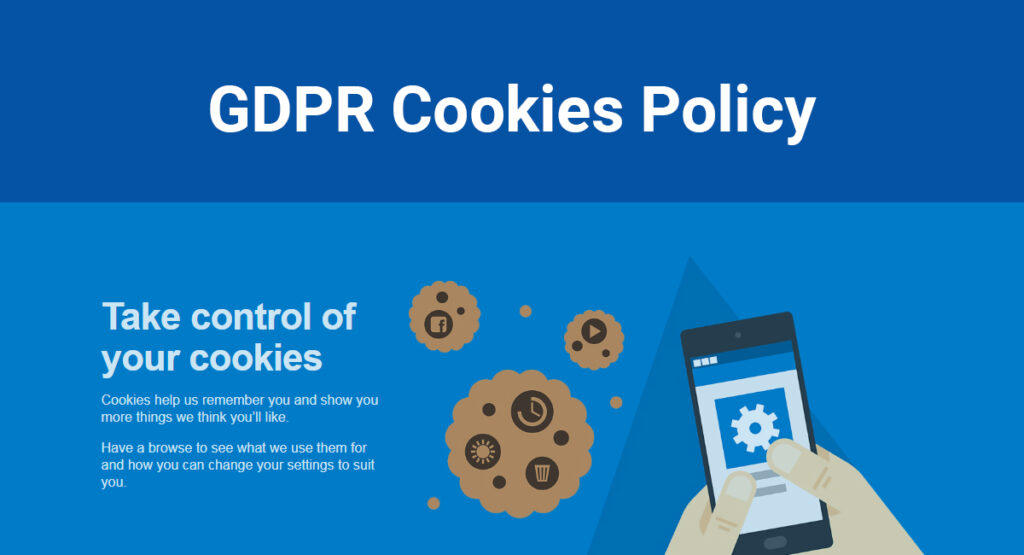The HTTP Cookie Monster: Internet Privacy Concerns and Social Awareness of Data Protection

In their article titled, “A Reality Check(list) for Digital Methods”, Venturini et al. present the compelling argument that the collection, analysis, and exchange of “Big Data” has become increasingly prevalent within media environments, consequently altering the nature of online spaces (Venturini, et al. 2018). Indeed, throughout the past decade, digital media has been subject to major changes, shifting from a largely academic resource used by scholars and researchers to a more commercialised environment accessible to all. The commercialisation of the digital public sphere has led to a dramatic move towards the privatization of information, radically threatening net neutrality (Goodman 2017). Websites and social media platforms are generally no longer accessible to users for free, and the currency requested is personal data.
A significant theme raised in Venturini et al.’s study is the negative sociological impacts that the tracing of users’ online activity may cause, “not surprisingly, this growing traceability of collective actions has affected social sciences” (Venturini, et al. 2018, 4196). The uncertainty surrounding digital footprint tracking is often met with reluctance as many deem it as a breach of privacy, thus raising fundamental ethical questions regarding the future of personal information online.
What are Cookies and Why are They Intrusive?
While classic business models are still prevalent on digital media platforms – methods such as subscription fees and advertisement continue to be used on websites, a new blueprint is emerging; the trading of information or “Big Data” for monetary compensation (Venturini, et al. 2018, 4197). Through the widespread practice of user surveillance, collection of data has now become a profitable economic transaction, “media companies collect information from us and redistribute it in various configurations and products as part of their business strategy” (Venturini, et al. 2018, 4197). In accordance with this new development, HTTP cookies were created, and they have grown to become an integral part of data collection and distribution (Singleton 2000).
Tracking cookies are third-party text files placed on websites that collect user information on browsing habits, products viewed, content engaged with and preference settings. They are principally employed for advertisement purposes, gathering key information in order to display targeted adds to the corresponding demographic, “web-tracking and information-gathering technologies, including cookies, […] offer marketers the opportunity to collect a wealth of consumer information.” (Sipior, Ward and Mendoza 2011, 1). By consenting to cookies, the user gives the written authorization to access their information, which is then shared with web interaction companies (Angwin and McGinty 2010). Although cookies were initially conceptualised to help users shop online, they have since grown beyond its intention and become a synonym for the invasion of privacy (Hormozi 2005, 51). Cookies are commonly thought to be one of the internet’s greatest failures with regards to privacy, the ambiguity surrounding who can access and resell data proposes significant debates regarding user safety both on and offline (Vox Recode 2019).
In a study conducted by The Wall Street Journal in 2010, 50 popular websites in the United States were examined by measuring the amount of web beacons and other trackers installed to monitor platforms traffic. The 50 websites had installed a total 3,180 active tracking files on the test computer used for this experiment (Angwin and McGinty 2010). This study gives a clear indication of how prominent tracking text files such as cookies are, and to what extent users truly interact with them, albeit perhaps unknowingly.

Attempts to Moderate the Barrelling Freight Train
The EU General Protection Regulation (or GDPR) delineates the laws that guarantee the protection of personal data when it is collected from online platforms. Although there are rules implemented to ensure privacy protection for companies and consumers alike, there are notable exceptions that allow organisations to access and reuse personal information, for example if provided with physical consent (Your Europe 2021). The “EU Cookie Legislation” is a law implemented in an attempt to regulate the lucrative data market; the introduction of cookie consent notices allows the users of a webpage to specify their choice regarding the management of their personal data. This often takes the shape of a banner that appears when clicking on a website requesting consent to access the content on the webpage. Although this gives the user a sense of control of their personal data, many believe that proliferation of such alerts is ineffective in protecting user information. Shane Green, the CEO of a private data sharing platform digi.me, maintains that “they’re generally pretty useless so far” (Vox Recode 2019).

Alternative Solutions to Privacy Issues
To combat this issue, there is software currently available that enables users to have more control over the cookies that are placed on their hard drives (Hormozi 2005, 57). Operating systems such as Internet Junk Busters, Cookie Cutter and Cookie Monster are all web proxies that limit users’ exposure to ads and cookies (Ibid.). Moreover, Google Chrome announced in August 2020 that it will begin the process of phasing out third-party cookies and launch a new set of APIs dubbed as the “Privacy Sandbox” (Burgess 2021). The director of Chrome engineering at Google, Justin Schuh, claims that “privacy-preserving and open-standard mechanisms like the Privacy Sandbox can sustain a healthy, ad-supported web in a way that will render third-party cookies obsolete” (Schuh 2020). Although many are still sceptical of the true changes that the “Privacy Sandbox” will bring, Google Chrome have reiterated their determination to improve the protection of personal data for users navigating their search browser.
Societal Repercussions of Digital Tacking
In his book titled, “Understanding Media: The Extensions of Man”, Marshall McLuhan famously proclaims that “the medium is the message”, implying that electronic infrastructures are not simply the transport of social phenomena, but they also actively participate in their production (McLuhan 1964, 7). The development and pervasive use of sophisticated text files such as cookies have innately changed the way in which private information is collected and managed on the online public sphere. Although cookies are intangible, their presence raises very real concerns regarding the handling of private information and individual free will.
Chicago Bibliography
Angwin, Julia, and Tom McGinty. 2010. The Wall Street Journal. July 30. Accessed October 1, 2021. https://www.wsj.com/articles/SB10001424052748703977004575393173432219064#articleTabs%3Darticle.
Burgess, Matt. 2021. Google’s cookie ban and FLoC, explained. May 25. Accessed October 3, 2021. https://www.wired.co.uk/article/google-cookies-floc.
Edelman, Gilad. 2020. Can Killing Cookies Save Journalism? May 8. Accessed October 2, 2021. https://www.wired.com/story/can-killing-cookies-save-journalism/.
Goodman, Carly. 2017. Commercialization brought the Internet to the masses. It also gave us spam. August 4. Accessed October 2, 2021. https://www.washingtonpost.com/news/made-by-history/wp/2017/08/04/commercialization-brought-the-internet-to-the-masses-it-also-gave-us-spam/.
Hormozi, Amir M. 2005. “Cookies and Privacy.” Information Systems Security 51-59.
McLuhan, Marshall. 1964. “The Medium is the Message.” In Understanding Media: The Extensions of Man, 7-22. Boston: The MIT Press.
Schuh, Justin. 2020. Chromium Blog. January 10. Accessed October 3, 2021. https://blog.chromium.org/2020/01/building-more-private-web-path-towards.html.
Singleton, Solveig. 2000. How Cookie‐Gate Crumbles. July 11. Accessed October 3, 2021. https://www.cato.org/commentary/how-cookie-gate-crumbles.
Sipior, Janice C., Burke T. Ward, and Ruben A. Mendoza. 2011. “Online Privacy Concerns Associated with Cookies, Flash Cookies, and Web Beacons.” Journal of Internet Commerce 1-16.
Venturini, Tommaso, Liliana Bounegru, Jonathan Gray, and Richard Rogers. 2018. “A Reality Check(list) for Digital Methods.” new media & society 4195–4217.
Vox Recode. 2019. Why every website wants you to accept its cookies. December 10. Accessed October 2, 2021. https://www.vox.com/recode/2019/12/10/18656519/what-are-cookies-website-tracking-gdpr-privacy.
Your Europe. 2021. Data protection and online privacy. 3 26. Accessed October 1, 2021. https://europa.eu/youreurope/citizens/consumers/internet-telecoms/data-protection-online-privacy/index_en.htm.